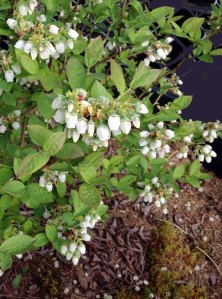You may have noticed that there is not a plural form for characters that represent Chinese nouns or pronouns. To indicate multiplicity, you would usually precede a noun with a quantity (number) or an adjective such as “few” or “many”, or follow a pronoun with the character 们 (men).
There is another way to indicate that there is more than one item involved, viz. to repeat the name of the item or its unit of measure. For example:
时时(shíshí) means often or constantly (not just one momemt).
天天(tiāntiān) means each and every day.
年年(niánnián) means each and every year.
人人(rénrén) means everybody.
家家户户(jiājiāhùhù) means each and every household.
祝你事事如意!
Zhù nǐ shìshìrúyì!
I wish that everything will go smoothly for you.
For many other entities, it is the unit that gets repeated to show that you are talking about each one of the entities in the group.
个个(gègè) means each and every one.
这些运动员个个都强健.
Zhèxiē yùndòngyuán gègè dōu qiángjiàn.
Each and every one of these athletes are strong and healthy.
样样(yàngyàng) means each and every kind or type of things.
这些礼物我样样都喜欢.
Zhèxiē lǐwù wǒ yàngyàng dōu xǐhuān.
I like each and every one of these presents.
斤 (jīn) is a unit of weight that’s about 1 1/3 lbs.
我们不要同别人斤斤计较.
Wǒmén bùyào tóng biérén jīnjīnjìjiǎo.
We should not haggle over every ounce with other people.
情人的眼泪滴滴都可贵
Qíngrén de yǎnlèi dī dī dōu kěguì.
Each and every drop of a lover’s tears is previous.
一片片的叶子掉落下来.
Yī piàn piàn de yèzi diào luò xiàlai.
Several leaves are dropping down.
You can compare the next two sentences to see the effect of repeating a unit:
桌上摆着一盘菜.
Zhuō shàng bǎi zhe yī pán cài.
There is a dish of food on the table.
桌上摆着一盘盘的菜.
Zhuō shàng bǎi zhe yī pán pán de cài.
The table is laid with dishes of food.
Lastly, this saying bears repeating:
条条大路通罗马.
Tiáo tiáo dàlù tōng Luómǎ.
All roads lead to Rome.
By the way, if you mean to say “per unit”, then precede the unit with 每 (měi each), such as in 每磅 (měi bàng per pound) and 每人 (měi rén each person or per person).
This is a good time to review other units of measure discussed in Chapters 6 and 7 of “Learn Chinese through Songs and Rhymes“.

Recent Comments